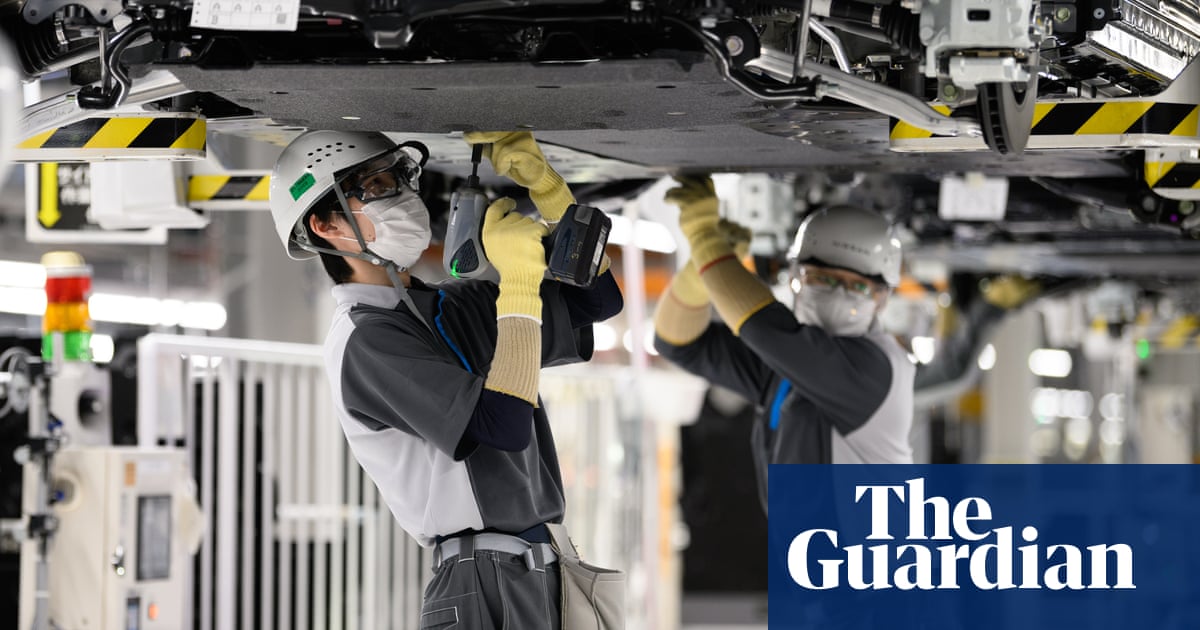Nissan is to close seven factories with the loss of 20,000 jobs around the world, after a tumultuous year for the Japanese carmaker.
As it slims down production, Nissan will make a further 11,000 job cuts,after 9,000 job losses announced in November, collectively reducing its workforce by 15%. They will affect staff and contractor jobs across manufacturing, sales and administration, as well as research and development.
Nissan did not say which factories were due for closure. However, its factory at Sunderland in north-east England, the carmaker’s only factory in Europe and where it employs 6,000 people, is not thought to be a likely candidate for closure.
The shake-up will reduce the number of its factories from 17 to 10 by 2027, andaim to save a total of 500bn yen(£2.6bn). Nissan will also overhaul its supply chain to source more parts from fewer suppliers to save money.
The company’s new chief executive, Ivan Espinosa, faces the difficult task of turning around a carmaker whose once-mighty brand value has been eroded. The company will be focusing on profitability rather than volume, he told a press conference.
“In the face of challenging full-year 2024 performance and rising variable costs compounded by an uncertain environment, we must prioritise self-improvement with greater urgency and speed, aiming for profitability that relies less on volume,” he said.
“As new management, we are taking a prudent approach to reassess our targets and actively seek every possible opportunity to implement and ensure a robust recovery.”
Nissan made a 671bn yen net loss in the year to the end of March, as it was hit by weakening sales in the US and China, plus the early effects of Donald Trump’s trade war. Talks overa $60bn merger with Hondacollapsed and Espinosa took over as chief executive last month.
Sign up toBusiness Today
Get set for the working day – we'll point you to all the business news and analysis you need every morning
after newsletter promotion
The company said it aims to reduce the workforce’s average cost an hour by 20%, by “rationalizing global R&D facilities and allocating work to competitive locations”.
Nissan’s supplier AESC, which runs the UK’s only operating gigafactory, has justsecured £1bn in funding for a new electric car battery plantinSunderland, in a government-backed deal that secures the future of a key project for the struggling British car industry.
